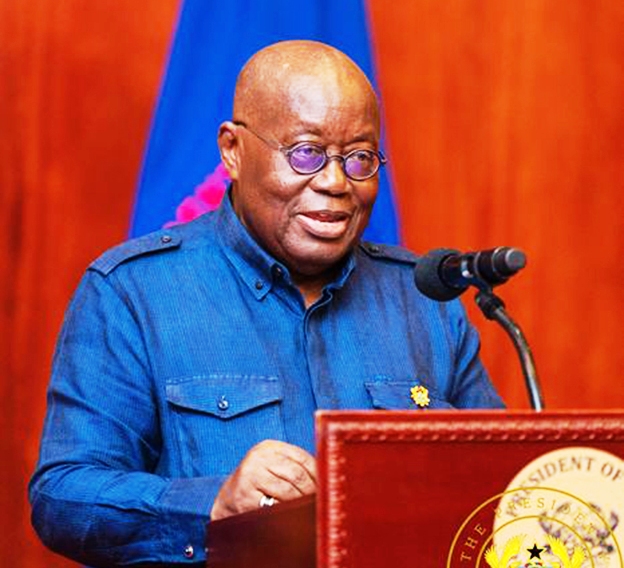The full report of the KPMG probe into the SML-GRA deal has been published upon the orders of the President, Nana Addo Dankwa Akufo-Addo.
Jubilee House, on Wednesday, May 22, 2024 issued a statement announcing the orders of the President and explaining why the once confidential report had been released.
Signed by the Director of Communications, Eugene Arhin, the statement indicated that though the report was exempt under Section 5 of the Right to Information Act, the President, in the interest of transparency, waived that privilege.
“However, the President, in the interest of full transparency in governance, openness and honesty with the public, has decided to waive the privilege under Section 5 of the RTI Act and has directed the publication of the KPMG report in full,” the statement said.
DENIAL
The Media Foundation for West Africa (MFWA), armed with the RTI Act, had requested a copy of the said report from the president, but was denied under Section 5 of the same law.
Section 5(1)(a) and (b)(i) of the RTI Act states that: “information is exempt from disclosure where the information is prepared for submission or has been submitted to the President or Vice President for consideration or contains matters, the disclosure of which would reveal information concerning opinion, advice, deliberation, recommendation, minutes or consultation made or given to the President or Vice President and is likely to undermine the deliberative process on the part of the President or Vice President.”
JUSTIFIED
Jubilee House, based on a judicial pronouncement on the matter, said it was justified in its decision to deny the RTI request for a copy of the full report.
The ruling was that a request that falls within the categories of information exempt under the RTI Act can be lawfully declined.
The KPMG report, according to the Presidency, comprised opinions, advice, deliberations and recommendations that are integral to the President’s deliberative process and, “therefore, qualifies as exempt information under sections 5(1)(a) and (b)(i) of the RTI Act.
“Thus, the Office of the President was justified in turning down the request from MFWA for a copy of the KPMG report.”
FINDINGS
KPMG said in its report to the President that “evidently, GRA executed the contracts with SML in breach of Act 663 of the Public Procurement Act as amended.
However, on July 28, 2020, as part of regularising the contracts, GRA, under new leadership, disclosed the breaches to PPA and sought its ratification, which was granted in a month’s time.
According to KPMG, there was no evidence that the contracts GRA signed with SML in 2018 and 2019 were submitted to the GRA board for deliberation and approval.
However, the projects underlining the contract signed in 2023 were submitted to the board for approval.
Section 33 of the Public Financial Management Act, 2016 (Act 921) provides that an entity must seek ministerial and parliamentary approval when it is entering into an agreement with financial commitments that binds the government of Ghana for more than one year.
The KPMG report said that the Consolidation Services Agreement on October 3, 2019 the measurement of downstream petroleum products on the same date and the addendum to measurement audit for downstream petroleum product agreement on July 29, 2020 were executed between GRA and SML for a period of five years each.
KPMG said it noted that all financial obligations stated in the contract were the responsibility of the government of Ghana, through whom the Ministry of Finance acts and GRA jointly and collectively as clients.
The KPMG said it “did not sight evidence of parliamentary approval for the contract as mandated by the PFMA,” though the contract binds the government.
MEASUREMENT
The measurement audit for downstream petroleum required SML to deploy an end-to-end Electronic Metering Management System (EMMS) to measure and monitor petroleum products delivered to and lifted from the Bulk Distribution Companies.
SML is said to have performed that obligation as it deployed an EMMS for 24 depots. But on measuring, monitoring, and digitalizing the entire delivery chain, KPMG found that SML had partially performed. SML is currently measuring and monitoring petroleum liftings with the flow metres in 16 out of 26 depots, per the data KPMG reviewed.
Also, SML has deployed staff in 24 depots to scan the waybills; however, it does not measure and monitor residual fuel oil because of its high temperature and viscosity.
Both parties agreed to review the performance of SML not later than 30 days after the first period from the effective date of the contract, but GRA did not perform that obligation under the contract.
Meanwhile, KPMG said it determined an incremental volume of 1.7 billion litres for the period May 1, 2020, to December 31, 2023, amounting to 38.6 litres per month.
There was also an increase in tax revenue of GH¢2.45 billion from May 1, 2020, to December 31, 2023. The amount works out to approximately GH¢55.68 million per month.
The net fee paid to SML for the same period was GH¢720 million, an average of GHs16.36 million monthly, which constitutes 29.41% of the incremental tax revenue.








